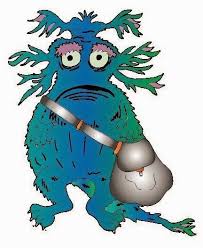
英语词源
- smirch (v.)
- late 15c., "to discolor, to make dirty," of uncertain origin, perhaps from Old French esmorcher "to torture," perhaps also "befoul, stain," from es- "out" (see ex-) + morcher "to bite," from Latin morsus, past participle of mordere "to bite" (see mordant). Sense perhaps influenced by smear. Sense of "dishonor, disgrace, discredit" first attested 1820.
- smirch (n.)
- 1680s, "a soiling mark or smear," from smirch (v.). Figurative use by 1862.
权威例句
- 1. The compound material of resin matrix may produce serious smirch phenomenon during the minute hole drilling.
- 以树脂为基体的复合材料在微孔加工中会产生严重污斑现象.